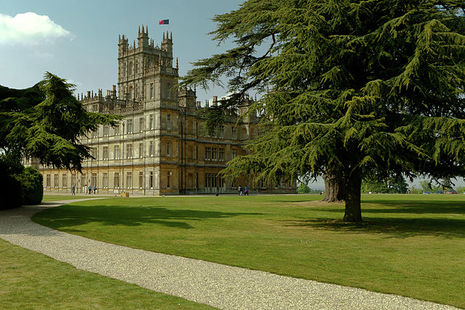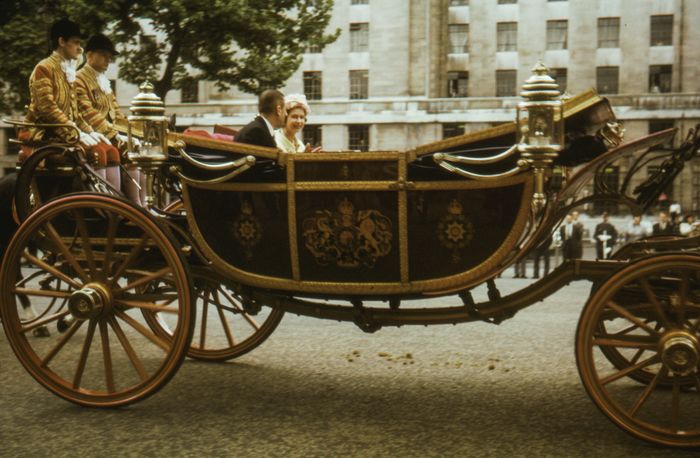RIP Maggie T, you would have loved Downton Abbey
A waspishly conservative message – one which even Liz Truss would laugh out of the Cabinet room – is at the centre of Downton Abbey

“Rest in peace to Margaret Thatcher. Rest in peace you cheeky gal. You would’ve loved Binley Mega Chippy”. It is with these words that Isaac H.P, friend of the anxiety-inducing ‘what are you listening to?’ TikToker OshuClips, sent his love to the Conservative leader of the late 20th century. Though I’m sure Thatcher would’ve loved the Coventry chip shop that stole TikTok’s hearts, there is another British institution that I’m sure she would’ve liked more: Downton Abbey.
Set in the aristocratic hills of Yorkshire, Downton Abbey tells the story of the Crawley family and its servants. Despite their polished public image, the Crawleys’ six-season lifetime is characterised by scandal. A Turkish ambassador dies on top of Lady Mary whilst having sex out of wedlock? No male heir to their regal estate? A visiting duke having an affair with a footman? There are many closets in the Crawleys’ mansion, and each houses a skeleton more debauched and un-Edwardian than the last.
“The Crawleys’ six-season lifetime is characterised by scandal”
There are some critics, however, who think that these skeletons are a distraction. Though it might be fun to marvel at weekly white-tie banquets, Downton sanitises Britain’s history. It takes the bloodied inequalities of the post-Edwardian period and markets them as something to be cherished rather than atoned for.
A quick dip into the Downton Abbey Wikipedia page tells the same story. Cora Crawley, the mother of the estate, is heralded as soft-spoken and family-oriented. Whilst Thomas Barrow - one of the only service people to rally against the privilege afforded to the Crawleys - is charmingly referred to as conniving and smarmy. In the viewer’s mind, the beneficiaries of the landed estate are the doting mothers, and those criticising its inequality are the villains.
To most, this won’t be much of a surprise. A show curated by a Conservative peer, with a name that makes Boris Alexander de Pfeffel Johnson blush, is bound to glamourise British history. The fact it places aristocracy on a pedestal isn’t all that shocking when its writer, Julian Alexander Kitchener-Fellowes, Baron Fellowes of West Stafford, sits on that very pedestal.
This story, however, only paints half of Downton’s conservative tale.
You don’t need to change the structural problems with the system, Downton suggests
Enter Margaret Thatcher. Blazing to electoral success in 1979, and gaining a 144-seat majority in ’83, her political career was built out of fighting the expanding power of the welfare state. Alongside an unhealthy dose of Victorian values, Thatcher saw the ‘nanny state’ as a political virus rather than the antidote. Where Labour promised to repurpose state power for those in need, Thatcher denied the assumptions their policy rested on and turned to charity. In the words of a more spritely, better-looking, Gordon Brown, “[Thatcher] pulled [charity] from the lumber room of social history, dusted [it] off and, much to the embarrassment…of Britain’s voluntary organisations…presented [it] as a vital component of thoroughly modern Thatcherism”. This Thatcherite ethic, however, can be put into fewer words: there is no need for a welfare state - good people, who want to do good things, will fill the gap.
This waspishly conservative message - one which even Liz Truss would laugh out of the Cabinet room - is at the centre of Downton. Let’s take a look at Thomas Barrow, the villainous footman. Downton Abbey Twitter loved to loathe Barrow and what he represented - someone with a burning desire to rise above his designated rank.
Thankfully for Conservative OAPs that love the show, Barrow eventually rids himself of this meritocratic delusion. Having routinely criticised the system for the better part of five seasons, he begins to realise his place in the servant class of the estate and is ultimately rewarded with a promotion to butler in the series’ finale. The all-merciful Crawleys, despite his communist moans and groans, extend their generous hand and reward him. You don’t need to change the structural problems with the system, Downton suggests; if you come to terms with the way things are, you will be rewarded by good people who want to do good things.
So, don’t let people convince you Downton Abbey is harmless, scandal-ridden fun. It is the host for a virus. Though their top hat and tails might not be Thatcherite blue, for every minute its characters appear on British TVs, they cast a dangerous shade of Thatcherism across the country.
 Comment / Plastic pubs: the problem with Cambridge alehouses 5 January 2026
Comment / Plastic pubs: the problem with Cambridge alehouses 5 January 2026 News / Cambridge businesses concerned infrastructure delays will hurt growth5 January 2026
News / Cambridge businesses concerned infrastructure delays will hurt growth5 January 2026 News / New movement ‘Cambridge is Chopped’ launched to fight against hate crime7 January 2026
News / New movement ‘Cambridge is Chopped’ launched to fight against hate crime7 January 2026 News / AstraZeneca sues for £32 million over faulty construction at Cambridge Campus31 December 2025
News / AstraZeneca sues for £32 million over faulty construction at Cambridge Campus31 December 2025 News / Uni-linked firms rank among Cambridgeshire’s largest7 January 2026
News / Uni-linked firms rank among Cambridgeshire’s largest7 January 2026









